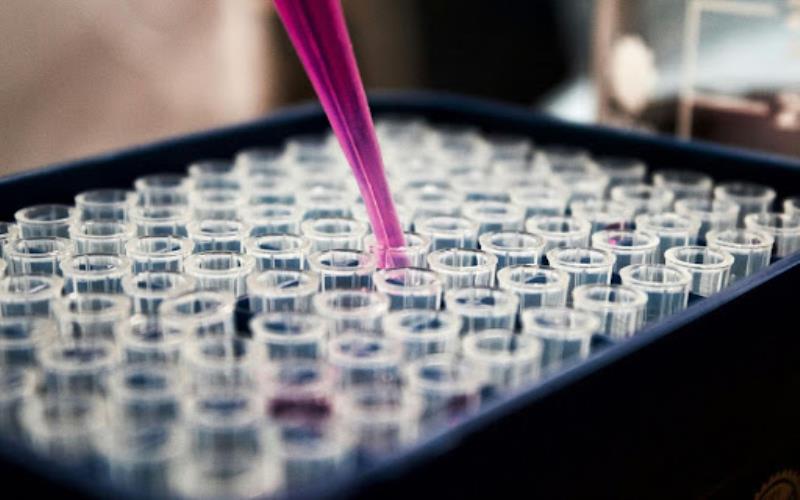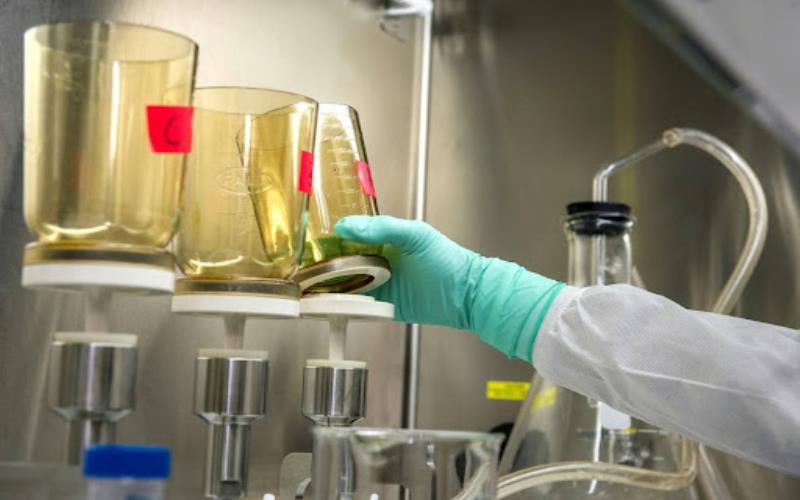Ever wonder how our bodies fight off invaders like bacteria and viruses? The answer lies in tiny, powerful proteins called antibodies. These little defenders are the heroes of our immune system, and understanding how they’re made can be quite fascinating.
Let’s examine the process of antibody production and uncover the magic behind these life-saving molecules.
Meet the Body’s Defenders: Antibodies
Before we talk about the production of antibodies, It’s only natural that we make sure you understand what they are, right? So, here are the basics!
Think of antibodies as the protectors of our immune system. They’re specialized proteins that our body produces to recognize and combat harmful invaders like bacteria, viruses, and toxins. Imagine them as tiny, highly trained warriors on a mission to protect us from getting sick.
When an invader, known as an antigen, enters our body, it doesn’t go unnoticed. Our immune system sends out these antibodies to track down the antigen and neutralize it. Each antibody is unique and matches a specific antigen, much like a lock and key. This precision ensures that the invader is effectively targeted and eliminated.
Antibodies don’t just attack; they also remember. Once our body has produced an antibody against a particular antigen, it keeps a memory of it. This way, if the same invader tries to attack again, our immune system can respond more quickly and efficiently. This memory function is the principle behind vaccinations, which train our immune system to recognize and combat specific pathogens without causing illness.
Antibodies are also used in various medical and research applications. In the lab, they’re essential tools for detecting and measuring substances, while in medicine, they’re used in diagnostics and as treatments for diseases like cancer and autoimmune disorders.
In summary, antibodies are the vigilant guardians of our health, always ready to defend us against harmful invaders. Their ability to recognize, neutralize, and remember makes them indispensable to both our immune system and modern science.
The Basics of Antibody Production
Creating antibodies is a process that involves several key steps, each critical to ensuring the antibodies produced are effective and pure. Let’s walk through these steps in detail.
Preparation and Immunization
Before we get our antibodies, we need to prepare and train the immune system to recognize and combat the target antigen.
- Identifying the Antigen
- Selection: Scientists start by picking an antigen, which is something that can provoke an immune response, like a virus or a specific protein. The right antigen is crucial because it will determine the effectiveness of the antibodies.
- Role of Antigen: The chosen antigen acts as a target, helping the immune system learn to recognize and produce antibodies against it. This step ensures the antibodies will specifically target the invader.
- Immunization
- Injection: The antigen is injected into a host animal, commonly a mouse or rabbit, chosen for their ability to produce antibodies similar to humans. The injection is monitored to ensure the animal’s health and good antibody production.
- Immune Response: The animal’s immune system recognizes the antigen as an invader and starts producing antibodies to combat it. This natural defense mechanism is harnessed to create the desired antibodies.
- Boosting the Response: Multiple injections over weeks or months help boost the immune response, increasing the production of effective antibodies. This step maximizes the quantity and quality of antibodies produced.
Collection and Purification
Once the host animal has produced enough antibodies, it’s time to collect and purify them to ensure we have a usable product.
- Collection
- Blood Sampling: Blood samples are taken from the immunized animal, containing the antibodies produced in response to the antigen. Enough blood is collected to yield a substantial amount of antibodies.
- Antibody Presence: The blood is rich with antibodies specifically tailored to the injected antigen, ready to be harvested and purified. This ensures the collected blood has high levels of the desired antibodies.
- Purification
- Isolation: The collected blood contains many different proteins and components. Purification processes isolate the specific antibodies from other blood components, ensuring a pure and potent antibody solution.
- Affinity Chromatography: Antibodies bind to a specific substance on a column, allowing other proteins to be washed away. This step ensures that only the desired antibodies are captured.
- Protein A/G Purification: This technique uses the natural affinity of antibodies for certain proteins, further refining the purity of the antibody preparation.
- Goal: The goal is to obtain pure, high-quality antibodies free from contaminants and ready for use in various applications. High purity ensures the antibodies are effective and reliable for research or medical use.
- Isolation: The collected blood contains many different proteins and components. Purification processes isolate the specific antibodies from other blood components, ensuring a pure and potent antibody solution.
The process of antibody production is both an art and a science, requiring precision and careful attention to detail at every step to ensure the final product is effective and reliable.
Types of Antibodies
Antibodies come in different types, each with its unique features and uses. Let’s explore the two main types: monoclonal and polyclonal antibodies.
Monoclonal Antibodies
Monoclonal antibodies are like identical twins, all derived from a single parent cell. This means they recognize and bind to the same specific part of an antigen, making them highly specific and consistent. Here’s how they’re made:
- Hybridoma Cells: The production of monoclonal antibodies involves creating hybridoma cells, which are a fusion of an immune cell that produces antibodies and a cancer cell that can divide indefinitely. This fusion allows for the continuous production of identical antibodies.
- Specificity: Because all monoclonal antibodies come from the same parent cell, they are identical and target the same part of the antigen. This high specificity makes them extremely valuable in both research and therapeutic applications.
Polyclonal Antibodies
Polyclonal antibodies are produced by multiple immune cells and can recognize different parts of an antigen. This diversity makes them useful for detecting antigens with multiple epitopes (distinct regions on the antigen). Here’s how they’re made:
- Diverse Production: Polyclonal antibodies are typically collected directly from the blood serum of the immunized animal. Unlike monoclonal antibodies, there’s no need for cell fusion techniques.
- Multiple Targets: Since they come from different immune cells, polyclonal antibodies can bind to various parts of an antigen, making them great for applications where broad detection is needed.
Applications of Antibodies
Antibodies are incredibly versatile and have a wide range of applications in both research and medicine.
Research
In the research lab, antibodies are essential tools. They help scientists detect and measure proteins, study cellular processes, and develop new therapies. Some common techniques that rely on antibodies include:
- Western Blotting: Used to detect specific proteins in a sample.
- Immunohistochemistry: Helps visualize the distribution and localization of specific cellular components within tissue sections.
- ELISA (Enzyme-Linked Immunosorbent Assay): Allows for the detection and quantification of proteins, peptides, and other molecules.
Medicine
In medicine, antibodies are used for diagnostic tests and treatments. Monoclonal antibodies are especially valuable in therapies for diseases such as cancer, autoimmune disorders, and infectious diseases. They can:
- Target Specific Cells or Proteins: Monoclonal antibodies can be designed to attach to specific cells or proteins, making treatments more effective and reducing side effects.
- Treat Diseases: Used in therapies for conditions like rheumatoid arthritis, certain types of cancer, and chronic inflammatory diseases.
- Diagnostics: Help in diagnosing diseases by detecting specific biomarkers associated with particular conditions.
Antibodies, whether monoclonal or polyclonal, play a crucial role in advancing science and improving healthcare, showcasing their immense potential in various fields.
Summing It Up
Antibodies are amazing defenders of our health, created through a cool process involving antigens, immunization, and purification. Whether they’re monoclonal or polyclonal, these tiny proteins play big roles in research and medicine, helping diagnose and treat various diseases. Now that you know how they’re made, you can appreciate the science that keeps us healthy!


